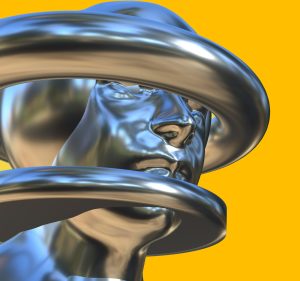Preface
Dear Reader

We are living in a time of extraordinary technological advancement, where artificial intelligence is rapidly transforming how we interact with others, work, and create. While AI offers vast possibilities, it also presents serious challenges. Challenges that test the strength of human ingenuity, independence, and intellectual depth. In this swiftly changing environment, the full development of our natural human intelligence has never been more critical.
Our globalized surroundings are filled with never-before-encountered amounts of information, competing perspectives, and complex problems, where critical thinking stands out as an indispensable skill for the very survival of humanity. It is the key to producing sound judgments, crafting compelling arguments, and engaging meaningfully with the world around us. This book is not merely a collection of concepts and exercises, it is an invitation to think deeply, to question boldly, and to refine your ability to analyze and create ideas, concepts and arguments with clarity and precision.
Whether you are a student navigating academic challenges, a professional making a fundamental decision that shapes your work, or a lifelong learner seeking to sharpen your reasoning, the skills in this workbook will empower you.
Through structured lessons, practical exercises, and thought-provoking challenges, you will explore the elements of thought, the standards of reasoning, and the art of constructing and deconstructing arguments.
Critical thinking is not just a skill—it is the foundation of true intellectual freedom. It is the ability to question, analyze, and innovate beyond pre-programmed responses or algorithmic predictions. Unlike artificial intelligence, human intelligence is fueled by curiosity, shaped by lived experiences, and refined through creative problem-solving. The ability to think critically is what enables progress, fuels discovery, and ensures that human perspectives remain at the heart of decision-making.
Critical thinking is not about knowing all the answers. It is about asking better questions. It is about learning to recognize biases, assess evidence with discernment, and develop the intellectual courage required to revise your perspectives when necessary.
This book is an invitation to reclaim, refine, and strengthen your ability to think independently. It is designed to sharpen your reasoning, challenge assumptions, and empower you to evaluate information with clarity and precision. In a world where automation can replicate patterns but cannot originate wisdom, it is essential that we continue to nurture the bold, imaginative, and discerning minds that define what it means to be human.
Artificial intelligence can simulate reasoning, but it cannot truly understand. It cannot create from lived experience, nor can it challenge the status quo without a rational human direction. That power—the power of initiative, creativity, and originality—belongs to us alone. And through this book, you will embark on a journey to develop not only strong arguments and sharp analytical skills but also a confident and independent mind capable of shaping the future.
Here at Fanshawe College, we are committed to deep thinking, courageous questioning, and unyielding intellectual growth. The world needs minds that lead, not simply follow.
Let’s begin the journey.
Germán Gutiérrez-Sanin
Artificial intelligence (AI) refers to the capability of computational systems to perform tasks typically associated with human intelligence, such as learning, reasoning, problem-solving, perception, and decision-making. It is a field of research in computer science that develops and studies methods and software that enable machines to perceive their environment and use learning and intelligence to take actions that maximize their chances of achieving defined goals. Such machines may be called AIs.
Source: Wikipedia contributors. (n.d.). Artificial intelligence. Wikipedia. https://en.wikipedia.org/wiki/Artificial_intelligence
Human intelligence is the intellectual capability of humans, which is marked by complex cognitive feats and high levels of motivation and self-awareness. Using their intelligence, humans are able to learn, form concepts, understand, and apply logic and reason. Human intelligence is also thought to encompass their capacities to recognize patterns, plan, innovate, solve problems, make decisions, retain information, and use language to communicate.
Source: Wikipedia contributors. (n.d.). Human intelligence. Wikipedia. https://en.wikipedia.org/wiki/Human_intelligence

